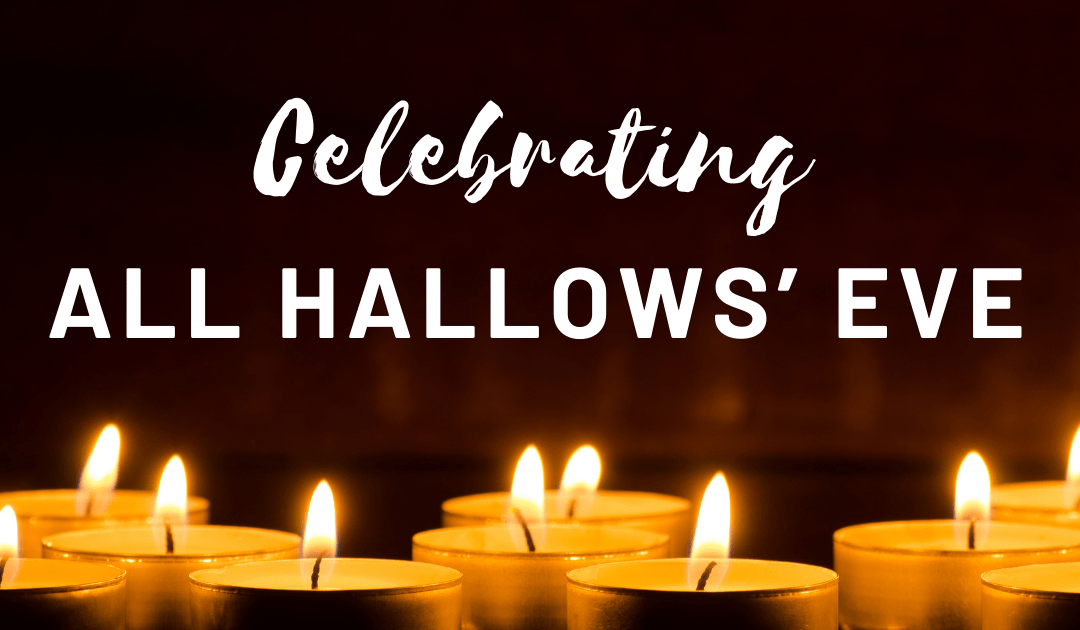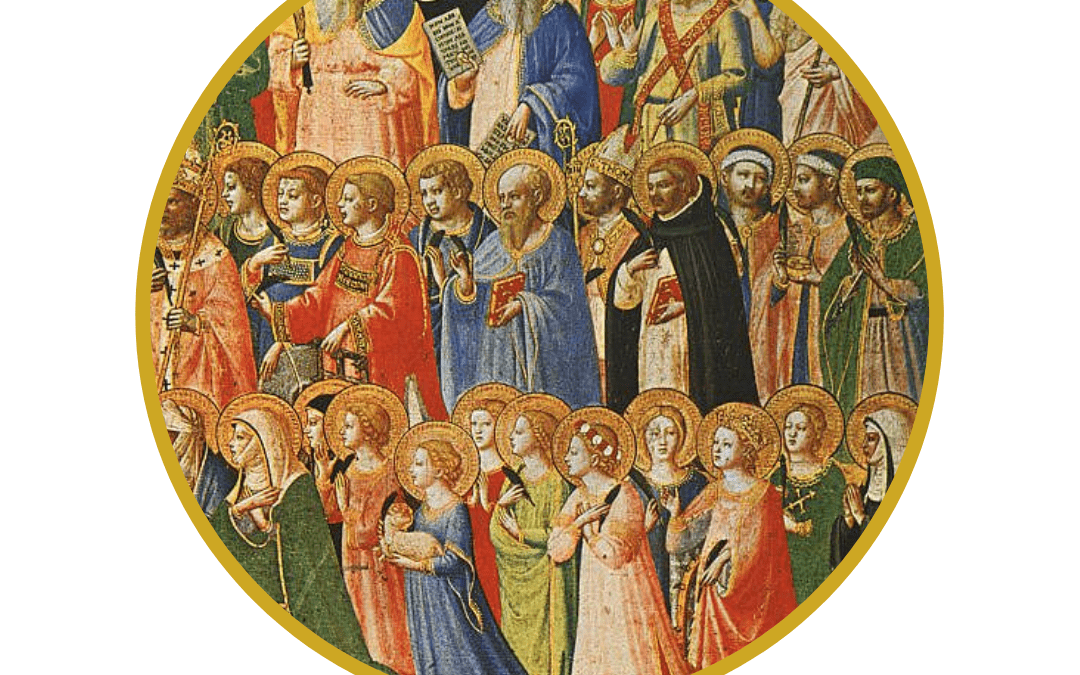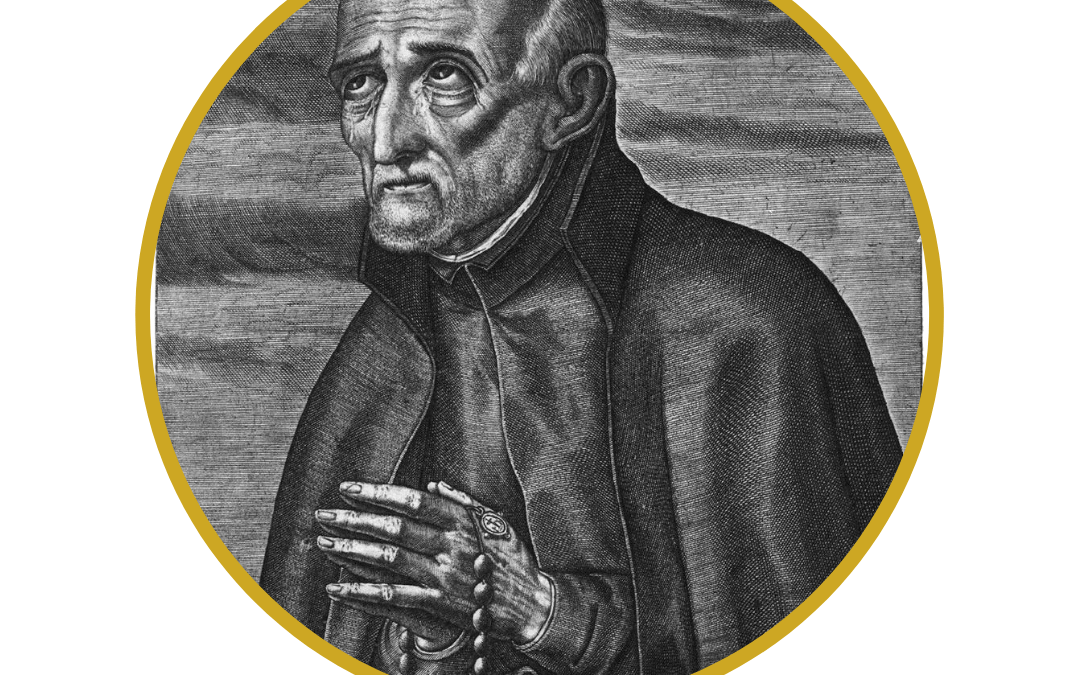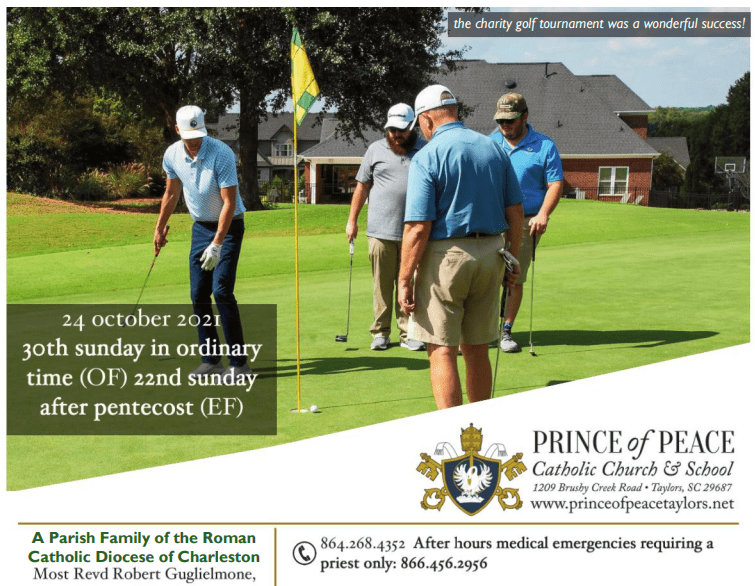
31 October 2021 Bulletin
Click to read this week’s bulletin: 31 October 2021 Bulletin

Click to read this week’s bulletin: 31 October 2021 Bulletin

In England, saints or holy people are called “hallowed” (deriving from the Old English word meaning holy or sanctified). Hence the name “All Hallows’ Day” for the Feast of All Saints. The evening before the feast became popularly known as “All Hallows’ Eve” or even shorter, “Hallowe’en”.
Many recipes and traditions have come down for this evening, such as pancakes, boxty bread, barmbrack (Irish fruit bread), colcannon (cabbage and boiled potatoes). This was also known as “Nutcrack Night” in England, where family gathered around the hearth to enjoy cider, nuts, and apples. “Soul cakes” are another traditional food. People would go begging for a “soul cake” and in exchange would promise to pray for the donor’s departed friends and family: an early version of today’s “Trick or Treat.”
(Sourced/Cited from theCatholicCompany.com)

1 November: Solemnity of All Saints. Today, the Church celebrates ALL the saints, canonized or beatified, plus the multitude in heaven enjoying the beatific vision that are only known to God. This history of this feast goes back to when the Church of Antioch kept a commemoration of all holy martyrs on the first Sunday after Pentecost. Saint John Chrysostom delivered annual sermons on this day entitled “Praise of All the Holy Martyrs of the Entire World.” In the centuries that followed, the feast spread through the Eastern Church and, by the 7th century, was as a widespread public holyday. In the West, the Feast of “All Holy Martyrs” was introduced when Pope Boniface IV was given the ancient Roman temple of the Pantheon and dedicated it as a church to the Blessed Virgin Mary and all the martyrs. The dedication date was May 13, and on this date the feast was then annually held in Rome. 200 years later, Pope Gregory IV transferred the celebration to November 1, mainly so that the many pilgrims who came to Rome for the “Feast of the Pantheon” could be fed more easily after the harvest than in the spring. Meanwhile, the practice had spread of including in this memorial not only all martyrs but all the other saints as well. Finally, Pope Sixtus IV established it as a holyday of obligation for the entire Latin Church, giving it a liturgical vigil and octave. The purpose of the feast is twofold. As the prayer of the Mass states, “the merits of all the saints are venerated in common by this one celebration,” because a very large number of martyrs and other saints could not be accorded the honor of a special festival since the days of the year would not suffice for all these individual celebrations. The second purpose was given by Pope Urban IV: Any negligence, omission, and irreverence committed in the celebration of the saints’ feasts throughout the year is to be atoned for by the faithful, and thus due honor may still be offered to these saints. This Feast of All Saints should inspire us with tremendous hope. As followers of Christ, we all have this universal call to holiness. “DO NOT BE AFRAID TO BE SAINTS. Follow Jesus Christ who is the source of freedom and light. Be open to the Lord so that He may lighten all your ways.” – Pope St. John Paul II
Ideas for celebrating this Solemnity at home:

30 October: Feast of Saint Alphonsus Rodriguez. Born in Spain in 1531, he was the third of eleven children. He began studies to be a Jesuit at an early age, but his father died and Alphonsus was obligated to take over the family business. He accepted this lot and in 1557 married a virtuous wife; they had three children. Within five years, his wife, two children and mother had all died. The business was also going poorly. Alphonsus sold the business and moved to his sister’s home. It was there that he learned the art of prayer and meditation in the midst of tragedy and failure. After the sad death of his last son, Alphonsus, almost 40 years old, sought to enter the Society of Jesus. They refused: he lacked a good education; was too old to start studying the priesthood; and was too weak to do a brother’s work. He tried again. Finally, they admitted him, remarking they were receiving him for his holiness. Alphonsus was appointed door-keeper of the Jesuit college at Majorca. For forty years, he remained at the same post. It was patient, humble work. Alphonsus’ holiness attracted many to seek him out. He always greeted everyone as if they were Christ. Alphonsus not only held the door key, he also had the key that helped others unlock their inner life: he understood the art of spiritual conversation. Alphonsus faced many personal battles against failure, loss, disease and temptation. He learned not to focus on himself but to see failure as a grace. He humbled himself and let failure shape him, handing himself over to the Lord in the simple service of others. He had a great horror of sin – he asked God to let him bear the torments of hell here below, rather than fall into a single mortal sin. He lived a life of severe penances. Demons would not leave this holy man alone. Twice he was thrown down a cement staircase. He was afflicted with many illnesses. When he was 60 years old, he was ordered to sleep in a bed (up until this, he slept only a few hours on a table or chair). He was told to write the story of his life, which he began with hesitation in 1604. He was misunderstood by a new Superior, but he found only joy and consolation in the public reproaches he received. He wrote in his book of maxims: “In the difficulties which are placed before me, why should I not act like a donkey? When one speaks ill of him — the donkey says nothing. When he is mistreated — he says nothing. When he is forgotten — he says nothing. When no food is given him — he says nothing. When he is made to advance — he says nothing. When he is despised — he says nothing. When he is overburdened — he says nothing… The true servant of God must do likewise, and say with David: Before You I have become like a beast of burden.” At the end of his life, Alphonsus lost even his memory and could only say, “Jesus, Mary.” On October 31, 1617, surrounded by his Jesuit brothers, Alphonsus died. He was already known and loved as a Saint by the population. In 1825 he was beatified, and was canonized in 1888 by Pope Leo XIII. He is the patron saint of Jesuit lay brothers.
Ideas for celebrating this feast day at home:
(sources: Biography of Saint Alphonsus Rodriguez, by Abbé L. Tabourier; catholicculture.org; jcapsj.org)

Click to read this week’s bulletin: 24 October 2021 Bulletin
Recent Comments